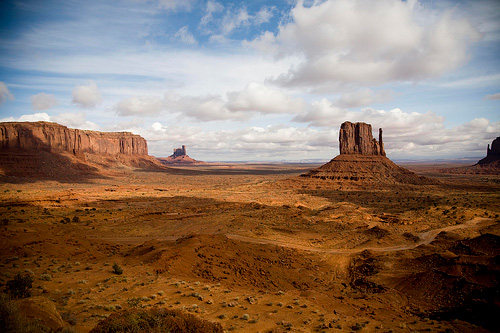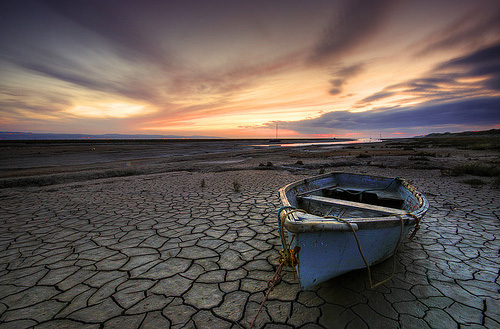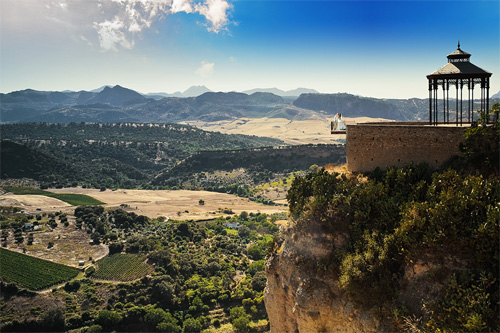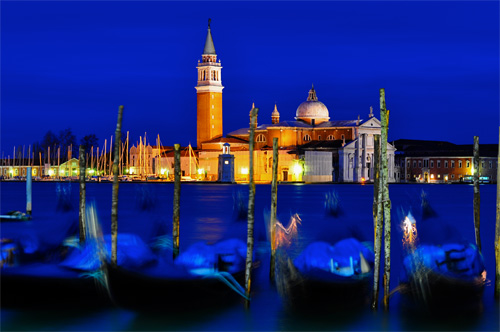The problem with most landscape photography is that not enough preparation is put into setting up the shot before it is taken. These tips are meant to give the photographer some things to think about before releasing the shutter.

“Sentinal Mesa and West Mitten” captured by PictureSocial member Paulo
1. Depth of Field
Most professional landscape photographers want everything in the shot to be equally in focus. This is done by increasing the depth of field (making it deeper).
Aperture controls the depth of field. The higher the aperture setting (e.g. f/22), the smaller the aperture opening will be. The smaller the aperture opening, the deeper the depth of field will be.
2. Use a Tripod
A deeper depth of field usually requires the shutter to be open longer for proper exposure.
The slightest shake of the camera while the shutter is open can cause unwanted blur. Using a tripod greatly decreases the chances of this happening.
3. Framing
We all have those busy vacation photos with so much in the shot that no-one can quite tell what the subject is. This is usually caused by distractions in the landscape. These distractions can be anything from people to dominant colored buildings.
These distractions should not dominate the shot. Use the viewfinder to crop out these distractions. If they are not in your viewfinder they will not be in the photograph.

“The Waiting Game” captured by PictureSocial member Mark Broughton
4. Foreground
Foreground is often not given the credit it is due in landscape photography. It should be used to help guide the viewer into the shot.
Look around at a landscape that you are interested in and see if there is anything that creates natural lines that lead into the scene. The foreground should not dominate the landscape, though, unless it is the actual subject of the shot.
5. Lighting
Most people wait for a nice sunny day before they grab their camera and head out. The photographers that do this lose out on some great landscapes.
Clouds can greatly enhance the mood of a landscape. Clouds themselves can also be made the subject of the landscape.
Dusk and dawn are also great times to shoot landscapes. Shadows are sharper and create more contrast in the scene. The light may even be a different color and cast a golden hue over the land. After all, who doesn’t like a sunset?

“Spanish Wedding” captured by PictureSocial member Slava Semenov
6. Perspective
Sometimes it is possible to take a seemingly ordinary scene and create a dynamic landscape just by moving go a different spot.
Try changing the perspective of the shot. Kneel down low and shoot at an upward angle. Get on higher terrain and shoot down. Move the horizon around the viewfinder a bit.
7. Composition
Use the rule of thirds whenever possible. This is done by dividing the scene shown in the viewfinder into 9 equal parts (like a tic-tac-toe board).
Where the lines intersect is where the points of interest should be positioned. Horizon lines should be placed on the top or bottom horizontal line.

“San Giorgio at Sunrise” captured by PictureSocial member Matt Marquez
Do not forget, the only thing that shows up in the photograph is what is seen through the viewfinder. So make that little area look as interesting as possible.
I hope you have enjoyed my 7 Tips for Better Landscape Photography.
About the Author:
Jonnie is a hobbyist photographer that helps new photographers learn the fundamentals of photography with his Landscape Photography Tips and more.
Go to full article: Tips for Better Landscape Photography
What are your thoughts on this article? Join the discussion on Facebook
Article from: PictureCorrect